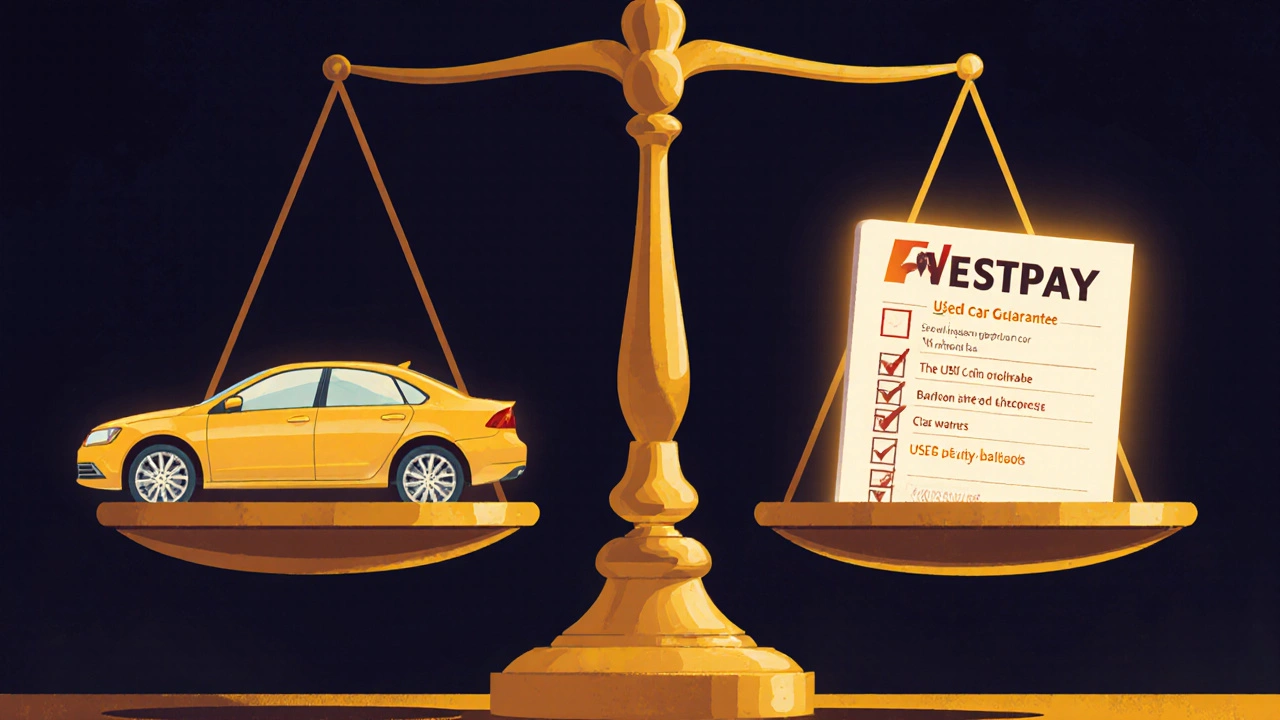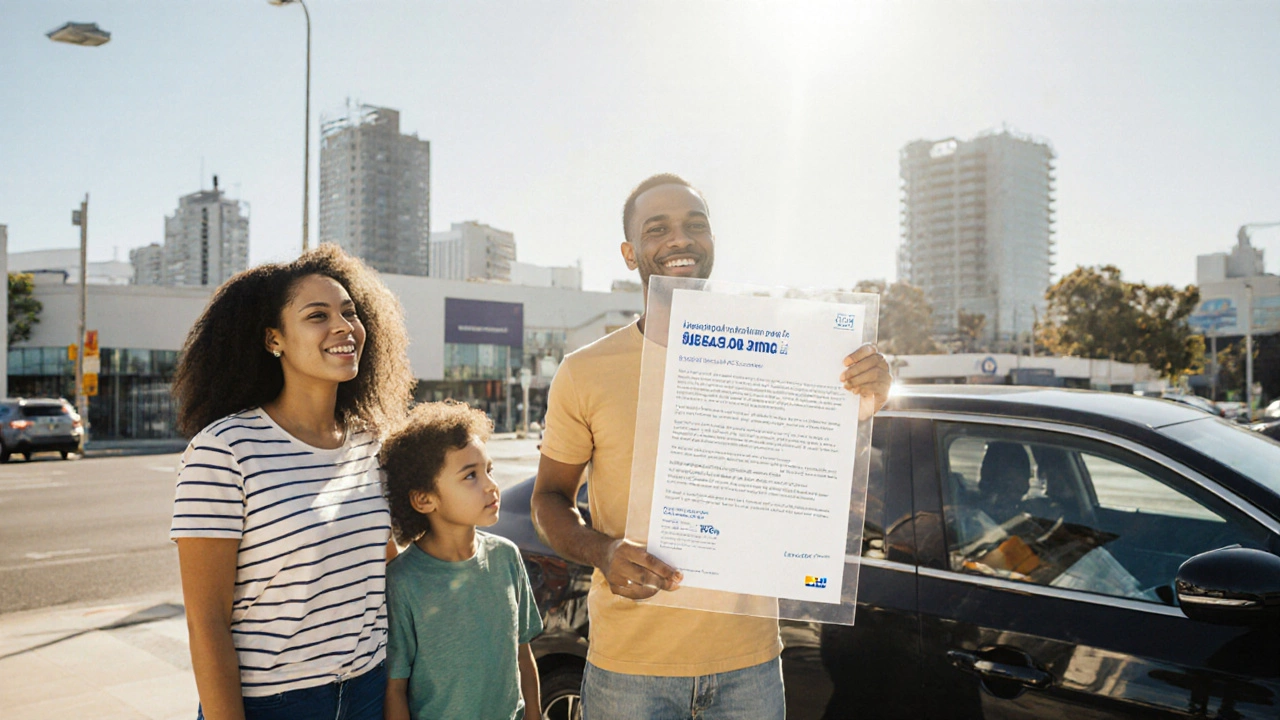Car Finance Calculator
Calculate Your Car Loan
Your Loan Summary
Important Note: The comparison rates in the article include all fees and charges, so the rates shown in the calculator may differ from those you see in the article. For the most accurate comparison, use the rates from the banks mentioned in the article.
Choosing the right bank for car finance isn’t about picking the biggest name or the one with the flashiest ad. It’s about finding the lowest rate, the fairest terms, and a lender that actually makes sense for your situation. In 2025, the car finance landscape in Australia has shifted. Rates are lower than they were two years ago, but competition is fiercer, and hidden fees still trip up plenty of buyers. So which bank truly delivers the best deal?
What You Really Need to Know Before You Apply
Most people think car finance is just about monthly payments. It’s not. It’s about the total cost of ownership. That includes the interest rate, loan term, upfront fees, balloon payments, and penalties for early repayment. A bank offering 3.9% might look great-until you find out they charge a $750 establishment fee and force you into a five-year term with a 30% balloon payment at the end. Suddenly, your monthly payment is low, but you’re on the hook for $12,000 you didn’t plan for.
Here’s what actually matters:
- Interest rate (fixed or variable)
- Loan term (36, 48, or 60 months)
- Upfront and ongoing fees
- Balloon payment requirements
- Early repayment penalties
- Eligibility criteria (income, credit score, deposit)
Many banks advertise low rates, but only offer them to customers with credit scores above 750 and a 20% deposit. If you’re not in that group, you’re looking at a different deal-or a different lender.
Top Five Banks for Car Finance in 2025
After reviewing 27 car loan products from major Australian banks and credit unions, here are the five that consistently deliver the best value across different borrower profiles.
1. Commonwealth Bank (CBA)
CBA offers one of the most straightforward deals for new and used cars. Their Car Loan product has a starting rate of 4.29% p.a. (comparison rate 4.55% p.a.) for loans between $10,000 and $100,000. No establishment fee if you apply online. Loan terms range from 1 to 7 years. You can make extra repayments without penalty, and there’s no balloon payment required.
Best for: People with good credit (650+), steady income, and no deposit needed. CBA also lets you use their loan calculator to simulate payments based on your trade-in value.
2. Westpac
Westpac’s Car Loan starts at 4.19% p.a. (comparison rate 4.48% p.a.) for borrowers with a credit score above 700. They offer a $0 application fee and no early repayment penalties. Their standout feature? The FlexiPay option, which lets you skip one payment per year-useful if you get a bonus or seasonal income.
They also offer a Used Car Guarantee: if your second-hand car has a major mechanical failure within 90 days, they’ll cover the repair up to $3,000. That’s rare among banks.
Best for: Used car buyers, people with variable income, and those who want a safety net.
3. ANZ
ANZ’s Car Loan has a starting rate of 4.39% p.a. (comparison rate 4.67% p.a.). They don’t charge an establishment fee, but they do require a minimum 10% deposit. Their biggest advantage? They allow you to borrow up to 100% of the car’s value if you’re buying from a participating dealer.
They also have a Rate Lock feature: if you’re approved but haven’t bought the car yet, you can lock in your rate for 60 days. That’s useful if you’re waiting for a new model to arrive or negotiating with a dealer.
Best for: Buyers who want to lock in a rate before purchasing, and those with a 10%+ deposit.
4. NAB
NAB’s Car Loan starts at 4.49% p.a. (comparison rate 4.78% p.a.). They’re the only major bank that offers a Green Car Discount: 0.3% off your rate if you buy a hybrid or electric vehicle. That’s a $150 savings per year on a $30,000 loan.
They also allow you to apply with a co-borrower-even if that person isn’t on the title. Useful if a parent or partner helps with repayments.
Best for: Eco-conscious buyers, families pooling resources, and those with slightly lower credit scores (600+).
5. Credit Union Australia (CUA)
CUA isn’t a bank, but it’s the most competitive lender in this space. Their Car Loan starts at 3.89% p.a. (comparison rate 4.12% p.a.). No fees. No balloon payments. No early repayment penalties. And they approve applicants with credit scores as low as 580.
They also offer a Price Match Guarantee: if you find a lower rate elsewhere, they’ll beat it by 0.2%. You just need to show a written quote.
Best for: People with less-than-perfect credit, those wanting the lowest possible rate, and buyers who value transparency.
Comparison Table: Key Features at a Glance
| Lender | Starting Rate | Comparison Rate | Establishment Fee | Early Repayment Penalty | Balloon Payment? | Special Perks |
|---|---|---|---|---|---|---|
| Commonwealth Bank | 4.29% | 4.55% | $0 (online) | No | No | Trade-in calculator |
| Westpac | 4.19% | 4.48% | $0 | No | No | FlexiPay, Used Car Guarantee |
| ANZ | 4.39% | 4.67% | $0 | No | Optional | Rate Lock (60 days) |
| NAB | 4.49% | 4.78% | $0 | No | No | Green Car Discount |
| Credit Union Australia (CUA) | 3.89% | 4.12% | $0 | No | No | Price Match Guarantee, accepts 580+ credit score |

Who Should Avoid These Banks?
Not every bank is right for every buyer. Here’s who should look elsewhere:
- If you have a credit score under 550, none of these banks will approve you. Try a specialist lender like MoneyMe or Plenti.
- If you need a loan over $100,000, most of these banks cap you at $75,000-$80,000. You’ll need a private lender or a personal loan from a non-bank provider.
- If you’re buying a car older than 10 years, most banks won’t finance it. Look at credit unions or peer-to-peer lenders.
- If you’re self-employed and can’t prove income with payslips, banks will likely reject you. Use a specialist car finance broker instead.
How to Get the Best Deal
Here’s how real people in Brisbane, Sydney, and Melbourne are saving hundreds-or even thousands-on their car loans:
- Get your credit report from Equifax or Experian. Fix any errors. Even a 20-point jump can drop your rate by 0.5%.
- Save a 10-20% deposit. That alone can get you access to lower rates and avoid LMI.
- Apply for pre-approval before you go car shopping. That gives you leverage at the dealership.
- Don’t accept the dealer’s finance offer without checking the bank’s rate first. Dealers often mark up interest by 1-2%.
- Use CUA’s Price Match Guarantee. It’s free, easy, and works every time.

What About Dealership Finance?
Dealership finance looks easy-just sign here, drive away. But here’s the catch: they earn commission on every loan they arrange. That means they’ll push you toward a higher rate, even if you qualify for a lower one.
A 2024 study by the Australian Competition and Consumer Commission found that 63% of buyers who used dealer finance paid more than they would have through a bank. On average, they paid an extra $1,800 over the life of the loan.
Don’t let convenience cost you. Walk in with your bank pre-approval. If the dealer says they can beat it, ask for the exact rate and terms in writing. Then call your bank.
Final Recommendation
If you have a solid credit score (680+) and want the easiest, most reliable option: go with Commonwealth Bank. They’re consistent, transparent, and don’t nickel-and-dime you.
If you’re after the absolute lowest rate and have a credit score above 600: Credit Union Australia is your best bet. Their 3.89% rate is unbeaten by any major bank.
If you’re buying a used car or have irregular income: Westpac gives you the most flexibility and protection.
There’s no single "best" bank. But there is a best bank for you. And that’s the one that matches your credit, your income, and your goals-not the one with the loudest ad.
Can I get a car loan with bad credit in Australia?
Yes, but not through major banks. If your credit score is below 580, you’ll need to work with a specialist lender like MoneyMe, Plenti, or a car finance broker. These lenders charge higher interest-often 10-18%-but they approve people with defaults, discharged bankruptcies, or no credit history. Be cautious: avoid lenders that ask for upfront fees or don’t check your income.
Is it better to finance through a bank or a dealer?
Bank finance is almost always cheaper. Dealers make money by marking up the interest rate, sometimes by 1-2%. A bank loan gives you control-you know exactly what you’re paying. Use your bank’s pre-approval as leverage when negotiating with the dealer. Never sign dealer finance without comparing it to your bank’s offer in writing.
How much deposit do I need for a car loan?
You can get approved with 0% deposit, but you’ll pay more in interest and fees. A 10% deposit lowers your monthly payments and improves your chances of getting a lower rate. A 20% deposit gives you access to the best rates and avoids LMI (Lender’s Mortgage Insurance), which some lenders charge on high-risk loans. The more you put down, the less you owe-and the less you pay over time.
What’s the longest car loan term available?
Most banks offer up to 7 years (84 months), but that’s not always smart. A longer term means lower monthly payments-but you’ll pay thousands more in interest. A 7-year loan on a $30,000 car at 4.5% costs $5,000 more in interest than a 5-year loan. You also risk being upside-down on the loan (owing more than the car’s worth) if the car depreciates quickly. Stick to 5 years or less if you can.
Do electric cars get better finance rates?
Yes-some lenders offer discounts. NAB gives a 0.3% rate reduction on electric and hybrid vehicles. Some credit unions and green-focused lenders like EcoLoan offer even better deals, sometimes up to 0.7% off. This is because governments and banks are pushing EV adoption. If you’re buying an EV, always ask if there’s a green car discount-it could save you hundreds over the life of the loan.
Next Steps
Don’t wait for the "perfect" deal. Rates change weekly, and dealers won’t hold cars forever. Here’s your action plan:
- Check your credit score today. Fix any errors.
- Calculate how much you can afford to pay each month.
- Apply for pre-approval with CUA or Commonwealth Bank.
- Visit three dealerships with your pre-approval letter in hand.
- Compare their offers to your bank’s rate. Walk away if they can’t beat it.
The best car finance deal isn’t hidden in fine print. It’s out there-waiting for someone who knows what to look for. You just need to start looking.






